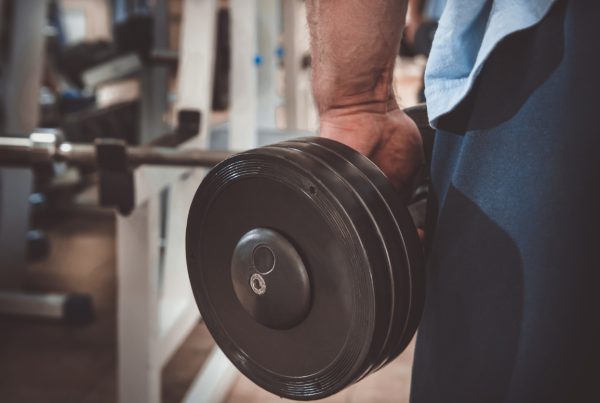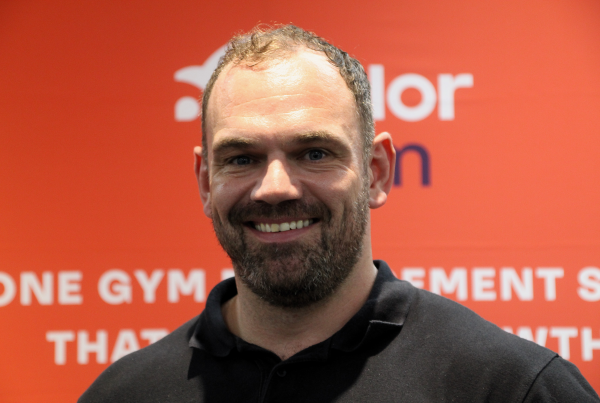In this blog series, we hear from some of the top health professionals in the UK about the importance of physical activity for lifelong health as we get ready to celebrate National Fitness Day on Wednesday 18 September.
In this first blog, we hear from Dr Hussain Al-Zubaidi, lifestyle and TV doctor, who discusses the National Fitness Day theme ‘Your Health is for Life’ and the importance of maintaining an active lifestyle as we age.
As we celebrate National Fitness Day, it’s crucial to understand that staying or getting active is the biggest driver to influence how we age. Our longevity. Contrary to popular belief, growing older doesn’t mean you need to slow down your physical activities. In fact, maintaining an active lifestyle as we age can significantly enhance our quality of life, preserve independence, and even prevent a range of age-related health issues.
Movement is life’s greatest anti-ageing treatment.
Let’s explore why movement matters and how it can positively transform our lives.
Understanding Age-Related Changes:
Ageing brings inevitable changes to our bodies. We often experience a decline in physical function, which can lead to pain, stiffness, fatigue, and reduced flexibility. For women, menopause introduces additional challenges, such as a drop in oestrogen levels, which helps maintain muscle mass and strength. This hormonal shift can make it more difficult to manage weight and stay fit.
While we can’t stop the ageing process, we do have the power to influence how our bodies cope with it. Regular physical activity plays a crucial role in mitigating these changes and improving our overall well-being.
The Benefits of Staying Active:
- Longevity and Vitality
It’s a common misconception that we must slow down as we age. Research tells a different story. For instance, a UK-based study involving amateur cyclists aged 55-79 found that those who exercised regularly did not experience the typical age-related muscle loss or increases in body fat and cholesterol. This challenges the belief that ageing inevitably makes us frailer.
We don’t stop moving because we get old; we get old because we stop moving.
- Fall Prevention
Falls are a significant risk for older adults due to balance issues, muscle weakness, and vision loss. They can be devastating and even fatal. Regular exercise improves mobility and balance, which is essential for preventing falls. The Chief Medical Officer recommends that older adults engage in balance and flexibility exercises at least twice a week. Participating in fall prevention classes can be particularly beneficial, as they help build strength and balance, reducing the risk of falls.
- Combating Loneliness
Loneliness can be a serious issue for older adults, affecting both mental and physical health. Engaging in physical activities often comes with social benefits, offering opportunities to meet new people and build connections. The social aspect of exercise is vital for older individuals, particularly for women, as it helps combat feelings of isolation and enhances overall well-being.
- Heart Health
Regular exercise is a powerful tool for improving heart health. It lowers blood pressure, reduces the risk of heart disease, and enhances circulation. Any amount of physical activity, no matter how long or short, is good for your heart health whatever your age. Incorporating aerobic exercises like walking or running, combined with muscle-strengthening activities such as yoga or Pilates, can significantly benefit cardiovascular health.
- Brain Health
Physical activity also benefits cognitive function. Staying active can boost memory and thinking skills, even in old age. Activities that require cognitive processing, such as learning new skills like dancing, offer particularly strong benefits for brain health.
Getting Started with Exercise:
So, how much should you exercise to enjoy these benefits? The key is to do a little more than what you are currently doing. Incorporate physical activity into your daily routine and choose activities that you enjoy and feel motivated to continue. The NHS recommends aiming for some form of physical activity every day and breaking up long periods of inactivity with movement. This doesn’t mean you need to engage in high-intensity workouts daily; simple activities like gardening, walking, or swimming can be highly effective.
If you have mobility challenges or need guidance, consider seeking support from a physiotherapist or a CIMSPA-qualified personal trainer. Start slowly, gradually increasing the intensity and duration of your activities as your body adapts.
In summary, don’t let age be an excuse to slow down. Embrace the power of movement, and you’ll not only enhance your physical health but also improve your overall quality of life. Celebrate National Fitness Day by committing to a more active lifestyle. Remember, you’ve got this!
Stay active, stay vibrant, and keep moving. The benefits are truly worth it.
To find out more about National Fitness Day and how you can get involved this year, visit the website here.

More People More Active More Often




